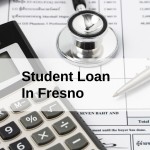In the pursuit of higher education, many students rely on student loans to fund their academic journey. However, the burden of student loan debt can be overwhelming, especially for recent graduates who are just starting their careers. Fortunately, there are options available to ease this financial strain, including student loan forgiveness programs.
What is Student Loan Forgiveness?
Student loan forgiveness is a government program that allows borrowers to have a portion or the entirety of their student loans forgiven, typically in exchange for fulfilling certain requirements such as working in public service or for a non-profit organization for a specified period of time. This program aims to alleviate the financial burden on individuals who have dedicated their careers to serving their communities or pursuing careers in certain fields where there is a high demand for talent.
Types of Student Loan Forgiveness Programs
There are several types of student loan forgiveness programs available to borrowers, each with its own set of eligibility criteria and forgiveness terms. One of the most well-known programs is the Public Service Loan Forgiveness (PSLF) program, which forgives the remaining balance on federal student loans after the borrower has made 120 qualifying monthly payments while working full-time for a qualifying employer.
Another program is the Teacher Loan Forgiveness program, which offers up to $17,500 in forgiveness for teachers who work full-time in low-income schools for five consecutive years. Additionally, there are forgiveness programs tailored to specific professions such as nurses, doctors, and lawyers, as well as programs for borrowers who are experiencing financial hardship.
Recent Updates in Student Loan Forgiveness
In recent years, there have been discussions and student loan forgiveness updates regarding potential reforms to existing forgiveness programs. The Biden administration, for example, has proposed expanding the PSLF program to include additional categories of public service workers and simplifying the application process to make it more accessible to borrowers.
Furthermore, there has been ongoing debate about the possibility of broader student loan forgiveness initiatives, including canceling a portion of federal student loans for all borrowers. While these proposals have generated significant attention and debate, they have yet to materialize into concrete policies.
Navigating the Application Process
For borrowers interested in pursuing loan forgiveness student loans, it is essential to familiarize themselves with the eligibility criteria and application process for each program. This may involve gathering documentation of employment, completing application forms, and submitting annual certification forms to ensure compliance with program requirements.
Additionally, borrowers should stay informed about any student loan forgiveness updates or changes to program guidelines that may impact their eligibility or repayment options. Resources such as the Department of Education website and reputable financial aid organizations can provide valuable information and guidance throughout the process.
Exploring Alternative Repayment Options
While student loan repayment programs offer significant benefits for eligible borrowers, they may not be the right solution for everyone. In cases where forgiveness may not be an option, borrowers can explore alternative repayment plans such as income-driven repayment (IDR) plans, which cap monthly payments based on income and family size.
Additionally, refinancing student loans with a private lender may be a viable option for borrowers with good credit who are seeking lower interest rates or more flexible repayment terms. However, it's important to weigh the pros and cons of refinancing carefully, as it may result in the loss of certain borrower benefits and protections offered by federal education loans.
For many recent graduates, education loan forgiveness represents a beacon of hope in navigating the challenges of student loan debt repayment. By understanding the various forgiveness programs available, staying informed about student loan forgiveness updates, and exploring alternative repayment options, borrowers can take proactive steps towards achieving financial freedom and building a brighter future.
Student Loan Forgiveness: A Lifeline for Graduates (Continued)
Despite the promising prospects of student loan forgiveness programs, navigating the intricacies of repayment options can be daunting for graduates. Therefore, it's crucial to seek out resources and guidance to make informed decisions about managing student loan debt effectively.
Accessing Resources and Support
Fortunately, there are numerous resources available to assist borrowers in understanding their options and navigating the apply for student loan forgiveness process. Government agencies, such as the Department of Education, provide comprehensive information on available programs, eligibility requirements, and application procedures. Additionally, financial aid offices at colleges and universities often offer guidance and support to current students and alumni.
Moreover, nonprofit organizations and advocacy groups dedicated to student loan forgiveness advocacy can provide valuable insights and assistance to borrowers seeking relief from their student loan debt. These organizations may offer workshops, webinars, and one-on-one counseling sessions to help borrowers understand their rights and options.
Staying Informed and Advocating for Change
In addition to seeking assistance from existing resources, borrowers can also advocate for policy changes that would expand student loan forgiveness programs and alleviate the burden of student loan debt for millions of Americans. Engaging in grassroots advocacy efforts, contacting elected representatives, and participating in public forums are all ways in which borrowers can make their voices heard and push for meaningful reforms.
Furthermore, staying informed about developments in education loan forgiveness application policy and legislation is essential for borrowers who want to advocate for change effectively. Following reputable news sources, subscribing to newsletters from advocacy organizations, and participating in online forums can help borrowers stay up-to-date on the latest developments and opportunities for advocacy.
Taking Control of Your Financial Future
Ultimately, while student loan forgiveness programs offer valuable support to borrowers struggling with student loan debt, it's essential for individuals to take proactive steps in managing their finances and planning for the future. This includes creating a budget, setting financial goals, and exploring opportunities for increasing income and reducing expenses.
Moreover, borrowers should take advantage of resources and tools available for managing student loans, such as online calculators, repayment calculators, and loan consolidation options. By taking control of their financial future and making informed decisions about student loan repayment, borrowers can minimize stress and achieve long-term financial stability.














